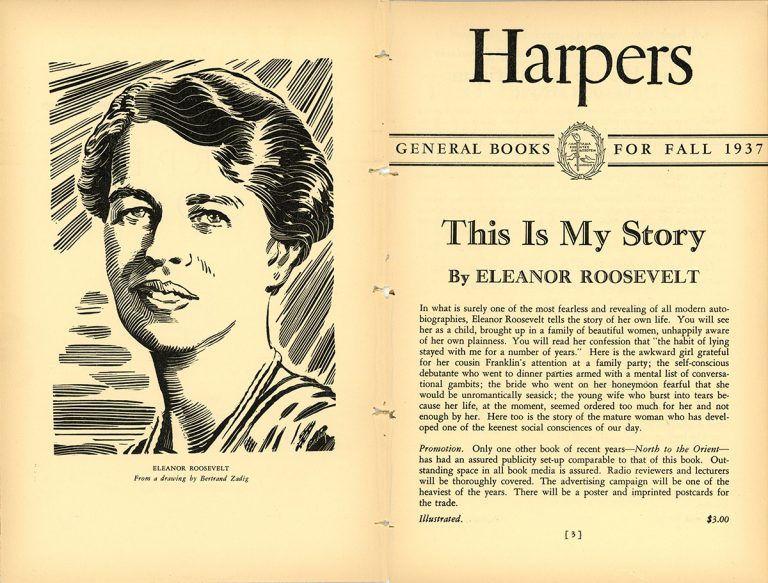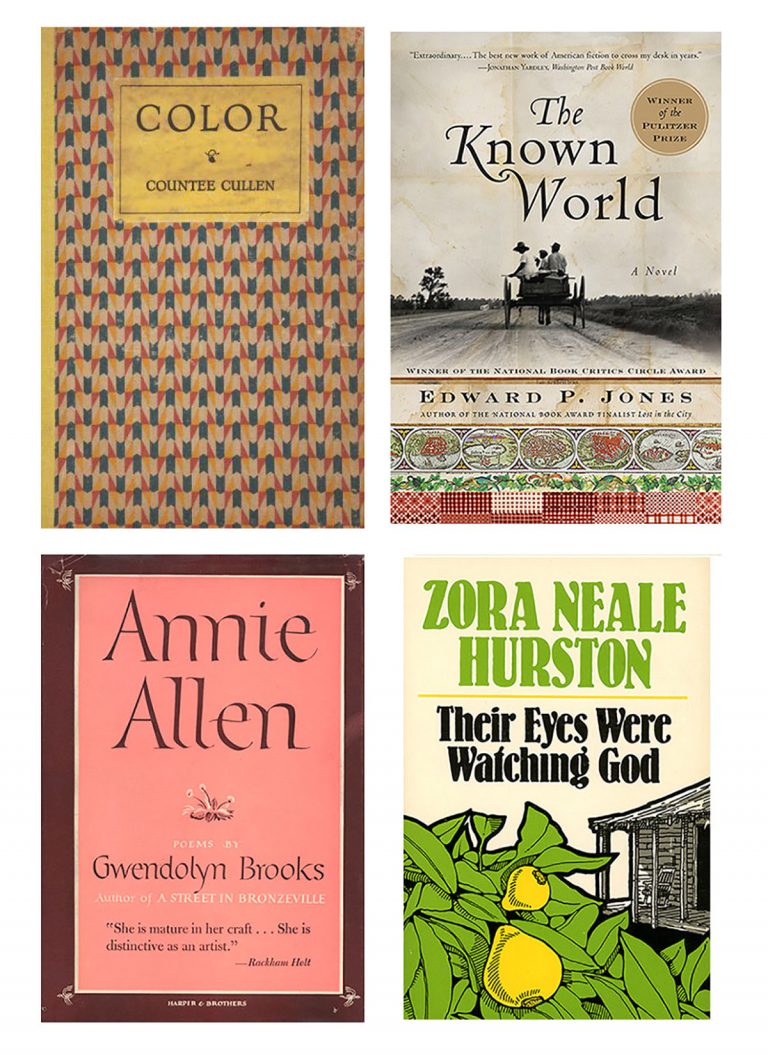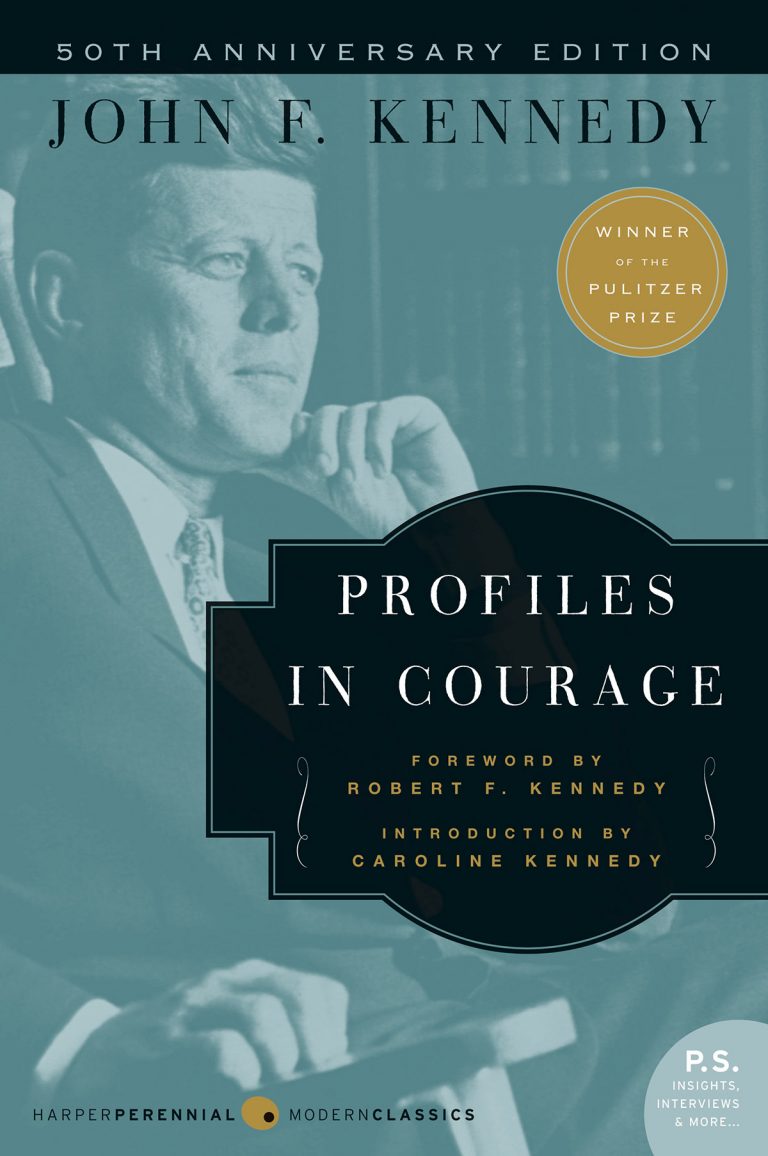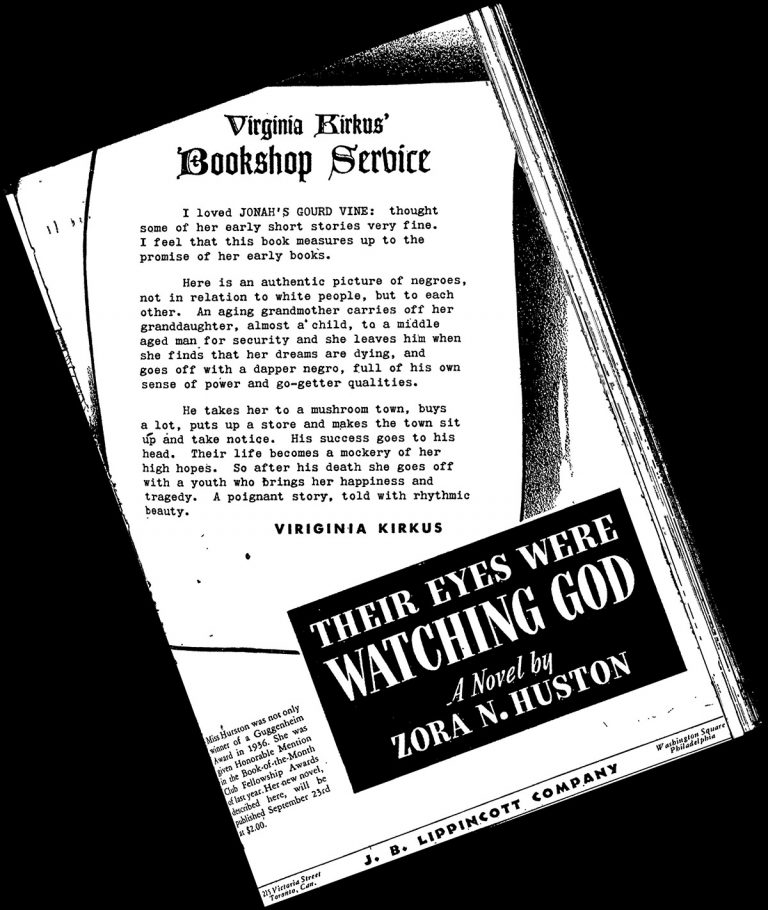Explore significant moments in HarperCollins history
Social Change: Civil Rights
Beginning with This Is My Story (1937), Harper & Brothers published many works by Eleanor Roosevelt that promoted civil rights and the need for government action, including This I Remember (1949), On My Own (1958), and Tomorrow Is Now (1963).
After leading the Montgomery bus boycott in 1955 and becoming the voice of the civil rights movement, the Reverend Martin Luther King Jr. selected Harper & Brothers to publish Stride Toward Freedom (1958). Editors Melvin Arnold and Eugene Exman waited five more years for a collection of King’s most-requested sermons, Strength to Love (1963), and the landmark book cast King as a thoughtful, compelling preacher and visionary, all the while emphasizing love as a force for social and political change.
The civil rights conversation today has expanded to also focus on lesbian, gay, bisexual, and transgender equality issues, as well as continuing the discussion of changing gender roles. Examples include Armistead Maupin’s Tales of the City series (first published in 1978), Linda Hirshman’s Victory: The Triumphant Gay Revolution (2012), Eric Marcus’s Is It a Choice? (1993), and Alan Cumming’s Tommy’s Tale (2014). Caitlin Moran’s How to Be a Woman (2012) and Roxane Gay’s Bad Feminist (2014) also provided insightful commentary on a host of these issues.





